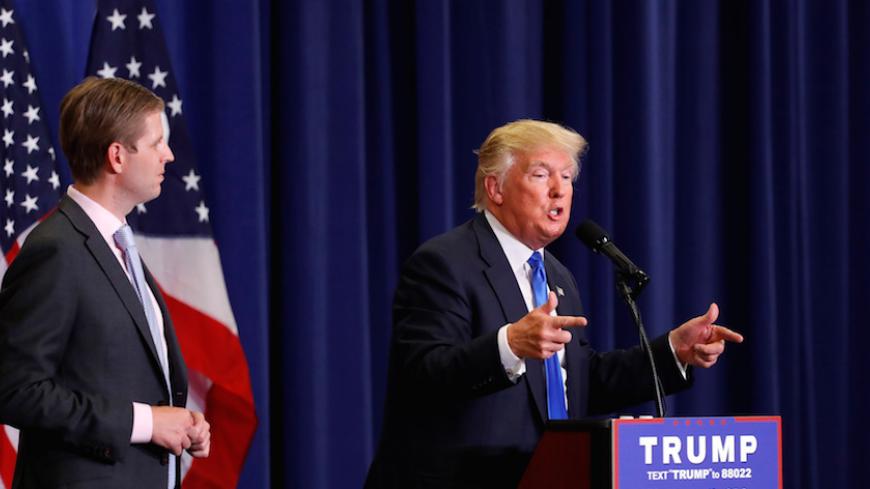Opinions vary among Egyptian analysts as to which US presidential candidate would be better for the ruling regime. While some argue that Donald Trump’s statements against the Muslim Brotherhood show there is some common ground between him and President Abdel Fattah al-Sisi, the presumptive GOP nominee’s rhetoric on Muslims has worried government figures and politicians in Cairo.
Sisi will likely not endorse a candidate in the upcoming US elections in order to maintain good relations with the next president, yet many of the positions and viewpoints voiced by Trump show that there are common ideas shared between him and the Egyptian president. In a foreign policy speech delivered in New York in late June, Trump described the Brotherhood as “radical” and accused presumptive Democratic nominee Hillary Clinton of supporting the Islamist group’s ascent to power at the expense of former President Hosni Mubarak.



